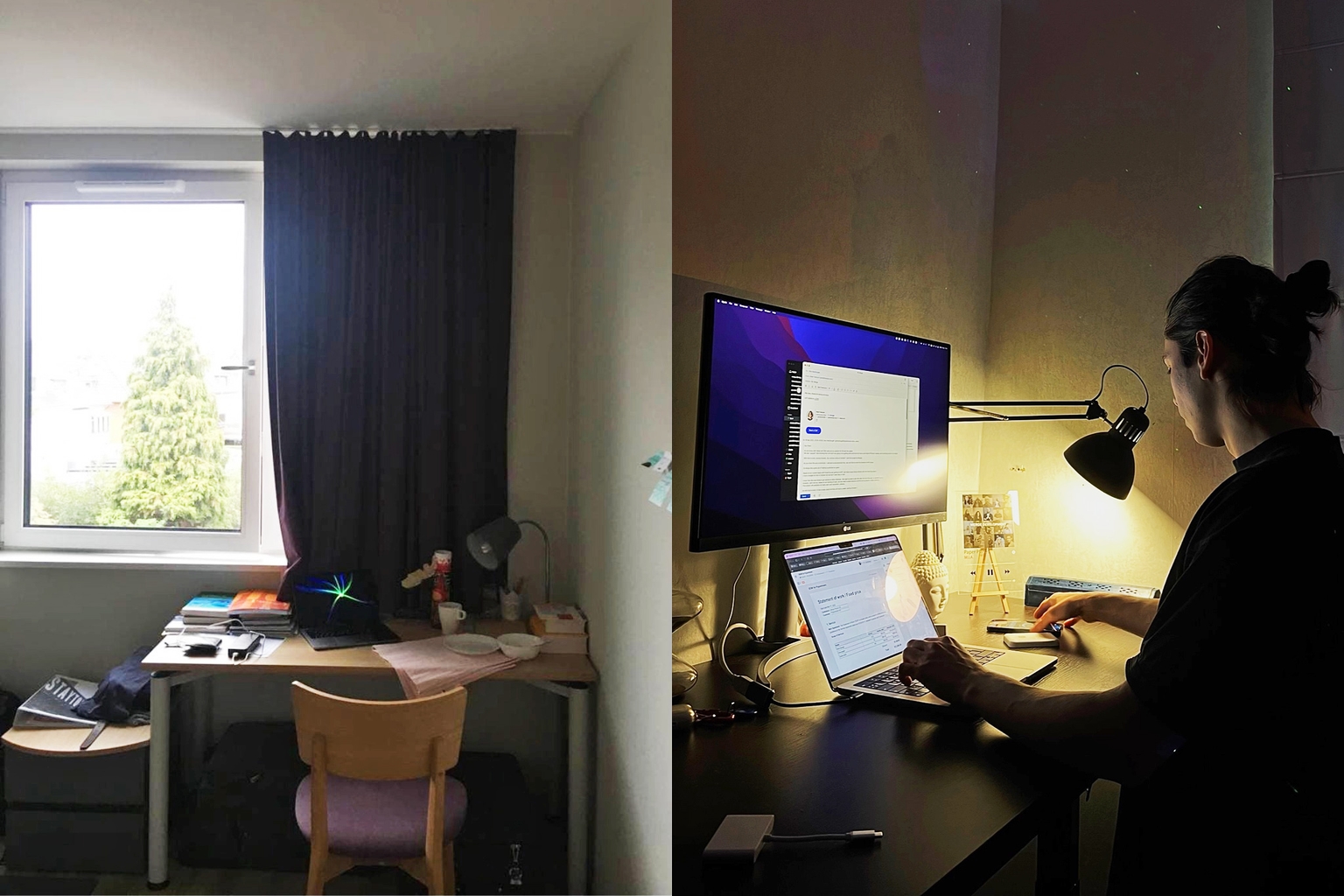The 21-year-old Ukrainian CEO running a global tech firm in war-torn Ukraine

Editor's Note: This story was sponsored by Ukrainian tech company Merge.
Ukrainian Pavel Tseluyko is not your typical CEO. A 21-year-old college drop out, he is running his tech company Merge in the middle of both a war and global financial crisis.
Despite all the challenges, Tseluyko says business is continuing to grow.
Last year, UI/UX design and development agency Merge generated almost $1 million in revenue. This year, it aims to reach $2 million. These figures may not be much compared to large tech firms, but for Tseluyko’s team of 55 people, they’re a reason to celebrate.
Merge programs and designs mobile apps, websites, landing pages, and dashboards for more than 40 clients, mostly in the U.S. Among them is American startup Invisibly, backed by Facebook’s first investor Peter Thiel, and Australian fintech startup Block Earner, backed by crypto giant Coinbase.
Russia's war has had almost no effect on the young tech firm’s business, Tseluyko said, whose employees had worked remotely and targeted international markets since the company's inception.
And while Tseluyko may appear to be an atypical case to foreigners, his trajectory is rather common in Ukraine: Some local startups are founded by undergrads who either try to start making money – to get out of their parents’ nest or provide for themselves as their families struggle to do so – or simply want to launch their careers early on.
The IT sector is one of the most lucrative industries for young Ukrainian entrepreneurs. They can learn the basics by watching tutorials on YouTube and then work as freelancers for small U.S. tech firms, as Tseluyko did.
“The brand of Ukrainian developers is strong around the world, creating innovative products that compete with European and American companies, albeit with a lower price tag for foreign customers,” Tseluyko said.

Employees of Ukrainian tech company Merge work in a coworking in Kremenchuk, a city in central Ukraine, on May 5, 2022. (Courtesy of Merge)
Origin story
While in school Tseluyko started making money on YouTube, creating videos about mobile applications. At 14, he learned web design and worked as a freelancer. At just 16 he had landed his first full-time job at a New York-based startup.
“All I did after school was work,” he said. “I'm happy that I found what I love to do early on. I experienced what it means “to be in the state of flow” – when you don't think about food, time, or sleep. I got a real kick out of it.”
He moved to Kyiv for university from his native small provincial town, but quickly dropped out to pursue his own venture, founding Merge when he was 18. At its outset, the company had only two employees, but with each year the team grew two-fold.
“As a Ukrainian, you have to grow up early,” according to Tseluyko. “We understand that if we do not achieve something ourselves, no one will help us.”
Most of Merge's employees are older than their CEO – the average age at the company is 26-27. But Tseluyko doesn’t mind. “I built a company culture where we are all equal and respect each other,” he said.

Pavel Tseluyko, CEO of Ukrainian tech company Merge and Elisabeth Gudzenko, head of design at Merge, pose for a picture in Kyiv on Aug. 18, 2022.(Courtesy of Merge)
In Tseluyko’s opinion, next-generation companies should cultivate their employees’ sense of ownership of the business. One of the ways to do it is offering contracts to exchange a share in the business for money in the future. Merge is on track to implement this, Tseluyko said.
Hanging above Tseluyko’s sit-stand desk and iconic Herman Miller Aeron chair (a visible upgrade from the small cluttered wooden table he said he used to work at), is a photo of Merge’s team.
“It reminds me of my main responsibility as an entrepreneur and gives me motivation.”

The photo on the left shows Pavel Tseluyko’s workplace at the time when he founded his tech company Merge in 2018. The photo on the right shows his current workplace in Kyiv. (Courtesy of Merge)
Next-generation business
Tseluyko calls his company “a business of the Zoom era”: everyone works remotely, values work-life balance, and takes care of their mental health.
Merge employees have 20 paid vacation days and 10 sick days per year. Every quarter, each employee receives $200 for expenses related to physical and mental health: to visit a gym, see doctors and psychologists, and pay for sports equipment and meditation courses.
In a young company, everyone is passionately curious and bold, according to Tseluyko. This helps to grow the business and make quick decisions even in difficult times, like during a war.
Merge didn’t have an “emergency plan” in case of a full-scale Russian invasion. A few weeks before it began, Tseluyko offered to help his team with evacuation, but no one took him up on the offer, as the possibility of an all-out war was unthinkable to most at the time.
The company resumed work in total capacity a week after Feb. 24 – most people remained in Ukraine, while some moved to other European countries.
Unlike many large Ukrainian tech firms that have lost customers, cut salaries, and had to lay off staff during the war, Merge has continued to operate as usual and has even hired new people. By the end of 2022, the company is hoping to expand the team from 50 to 70 employees.
Some big startups were initially worried about how the war would effect the company’s ability to operate, but they’ve stayed with Merge, according to Tseluyko.
To help Ukrainians who lost their jobs due to the invasion, Merge launched online courses to teach people coding and design.
“We won’t be making money from the courses any time soon,” according to Tseluyko. “But to share our knowledge and expertise is another good thing the Merge team can do to support our homeland.”
Working in Ukraine has always been a challenge for Ukrainian tech businesses. Most of them are registered in the U.S. and do business there because the Ukrainian market is too small and lacks the proper regulation.
Tseluyko thinks that this will change in the future.
“As for now, Ukraine's main advantage is hardworking, intelligent, and talented people,” he said. “That's why I'm not going anywhere.”










